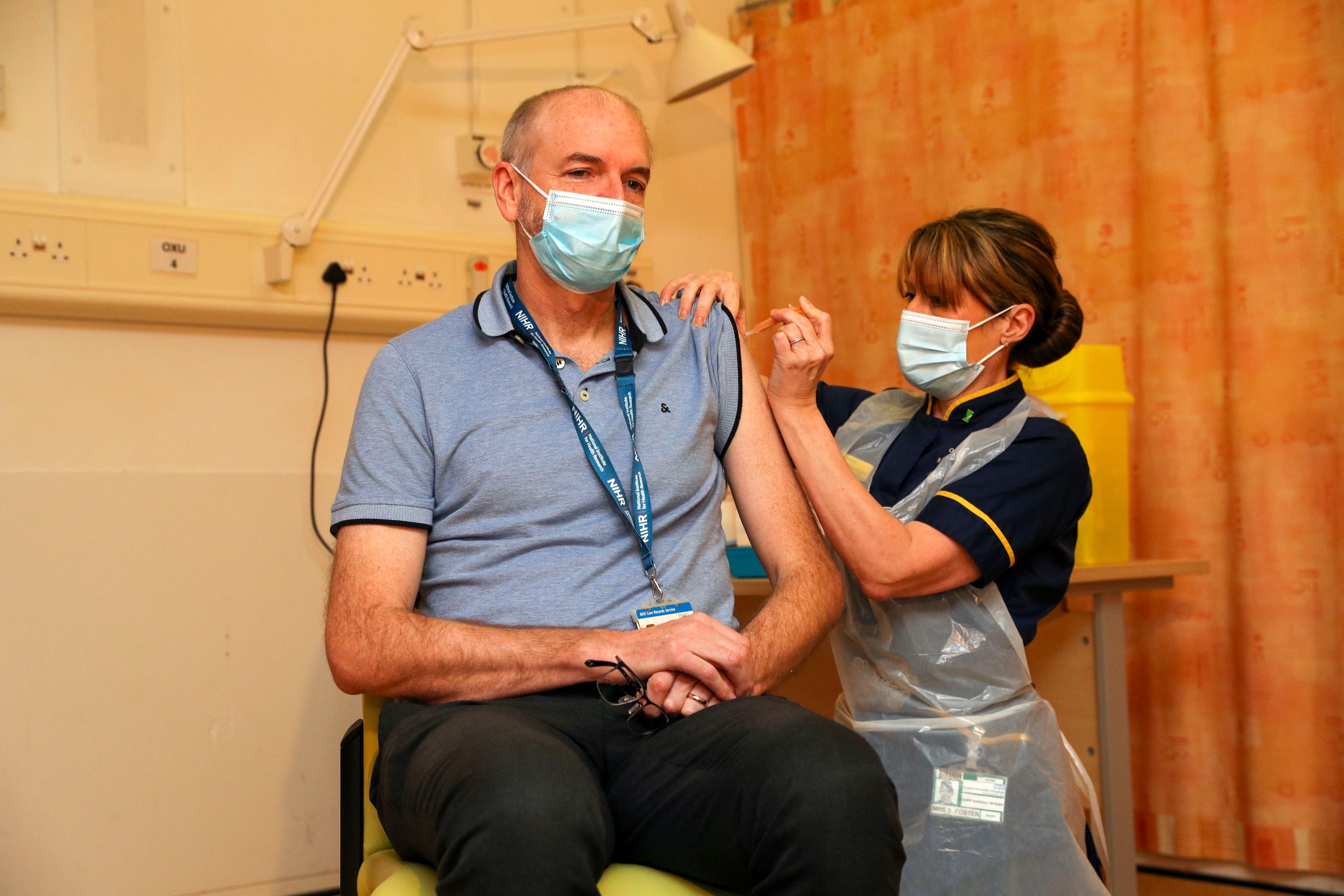No evidence of increased blood clot risk linked to AstraZeneca jab in UK, says head of Oxford vaccine group
‘Clearly blood clots still happen ... you’ve got to separate out whether they are at all related to the vaccine,’ says Andrew Pollard
Your support helps us to tell the story
From reproductive rights to climate change to Big Tech, The Independent is on the ground when the story is developing. Whether it's investigating the financials of Elon Musk's pro-Trump PAC or producing our latest documentary, 'The A Word', which shines a light on the American women fighting for reproductive rights, we know how important it is to parse out the facts from the messaging.
At such a critical moment in US history, we need reporters on the ground. Your donation allows us to keep sending journalists to speak to both sides of the story.
The Independent is trusted by Americans across the entire political spectrum. And unlike many other quality news outlets, we choose not to lock Americans out of our reporting and analysis with paywalls. We believe quality journalism should be available to everyone, paid for by those who can afford it.
Your support makes all the difference.Evidence from the UK suggests there is not an increased risk of blood clots in recipients of the AstraZeneca Covid jab, the head of Oxford University’s vaccine group has said.
Speaking after more than a dozen countries around the world said they would at least partially suspend rollout of vaccines produced by the British-Swedish pharmaceutical company, Andrew Pollard said the data did not point to a causal link between the jab and coagulation disorders.
“We have got very reassuring evidence that there is no increase in a blood clot phenomenon here in the UK, where most of the doses in Europe have been given so far,” Mr Pollard told the BBC Radio 4 Today programme.
He said it was important that reports of blood clotting were looked at closely but cautioned that the UK alone would ordinarily see around 3,000 cases of blood clots every month.
“When you put a vaccination campaign on top of that, clearly those blood clots still happen, and then you’ve got to separate out when they occur whether they are at all related to the vaccine or not,” he said.
More than 11 million doses of the AstraZeneca have already been administered in the UK and the Medicines and Healthcare products Regulatory Agency has said there is no evidence of an increased rate of blood clot cases.
Asked whether the UK should follow the Republic of Ireland and others who have suspended rollout of the AstraZeneca jab, either in full or just for a particular batch, he said that should be balanced against the “huge risks that there are of Covid, and if we have no vaccinations and we come out of lockdown we would expect tens of thousands of more deaths to occur during this year”.

Rising public concerns over the AstraZeneca vaccine led the MHRA on Sunday to urge people across the UK to continue to get their coronavirus vaccine.
Dr Phil Bryan, vaccines safety lead at the UK's medicines regulator, said people “should still go and get their Covid-19 vaccine when asked to do so”.
The vaccine's manufacturer has insisted it is safe, saying a review of available data in more than 17 million people who have been vaccinated across the UK and EU has shown no evidence of an increased risk.

Join our commenting forum
Join thought-provoking conversations, follow other Independent readers and see their replies
Comments